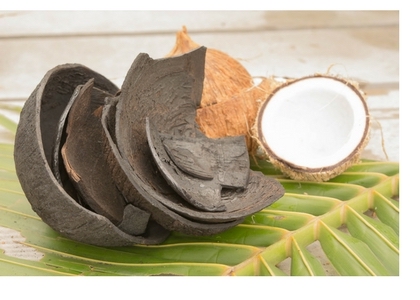
Charcoal In Juice: Healthy Boost or Pricey Trend?
By Isabel Smith, MS, RD, CDN
Activated charcoal has long been used to help soothe upset stomachs, induce vomiting (yuck, I know!) and help people rid themselves of toxins they’ve consumed. Maybe you’ve seen charcoal juices at your juice bar and wondered what all the buzz is about. Is this trendy drink that promises health benefits like “cleansing” and “detox” really good for you?
Like many other new health drink and food products out there with big promises, some of them really do hold the benefits they promise, whereas others fall way short.
Activated charcoal beverages can be pretty tasty, especially when mixed with other sweet ingredients like lemon or lime or even some fruit. But whenever I buy something that’s both super trendy and super expensive I like to know the benefits, and most of all look at whether it’s safe for consumption.
What is activated charcoal?
Usually derived from coconut shells, wood, or peat, the activated part comes from an additional process that exposes the charcoal to high temperatures. This “activates” a large amount of very small pores on the surface of the charcoal, creating microscopic pockets that can help trap compounds and particles. It is usually sold as a black odorless and tasteless powder.
Is it safe?
In small quantities, activated charcoal has been used for many years to help promote healthy digestion and help soothe digestive issues in general, so in small quantities we know it’s generally safe.
Pros:
It may help to ease digestive distress (though not much research supports this to date), and may help people feel like they’re promoting detoxification in their bodies.
Cons:
For some, activated charcoal can make them feel sick, and/or in many cases it really may do nothing at all to help promote wellness. Activated charcoal consumption in some cases can also interfere with other medications you may be taking and in some cases may also interfere with absorption of other vitamins and minerals in your foods.
Should You or Shouldn’t You:
Activated charcoal really isn’t something I recommend that my clients take or use to help promote detox because we really don’t know if it’s helpful or safe. While in most cases it usually isn’t dangerous (besides to the fact that it can drain your wallet), it may not contain all the benefits it promises
If I had $10 to spend I’d buy a green juice loaded with kale, cabbage, cucumber, ginger, collards or any dark green leafy veggie. The detoxification properties of cruciferous vegetables in general is much more well-researched and the properties they contain may also help to fight various types of cancers as well.